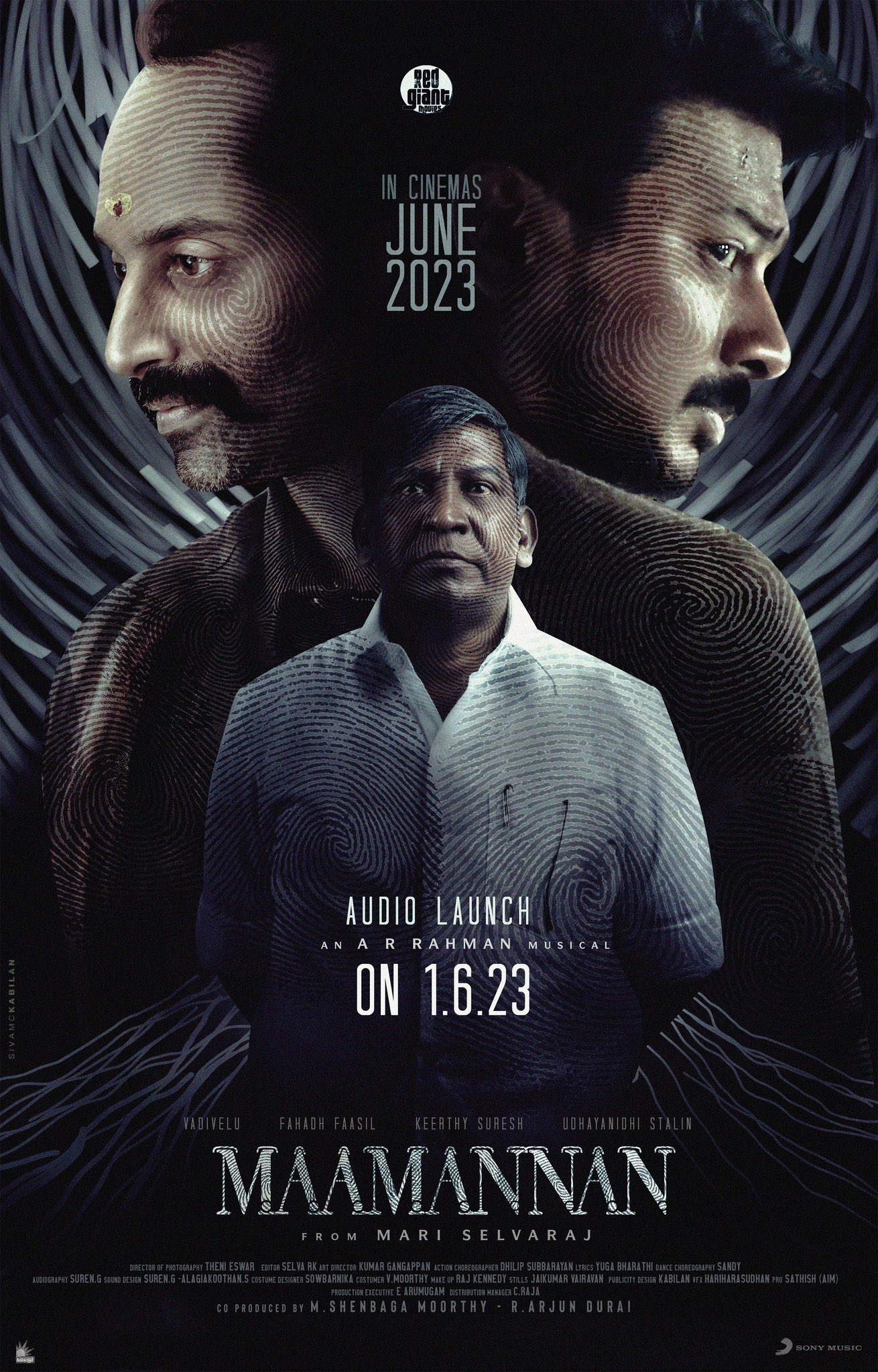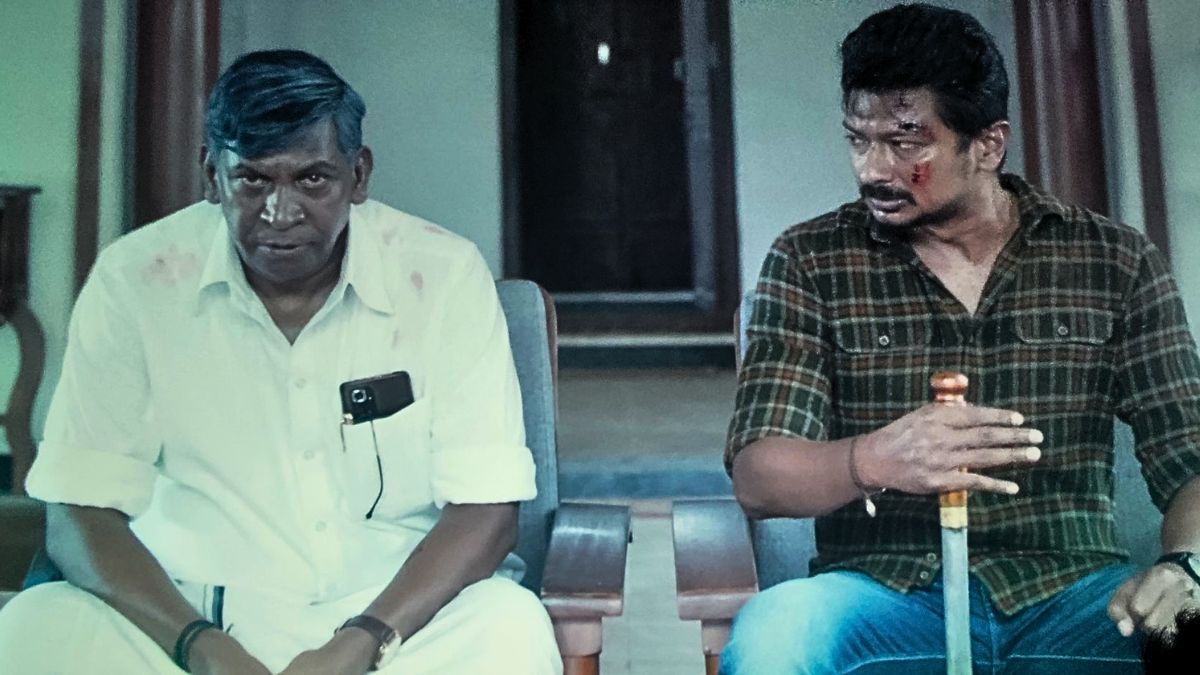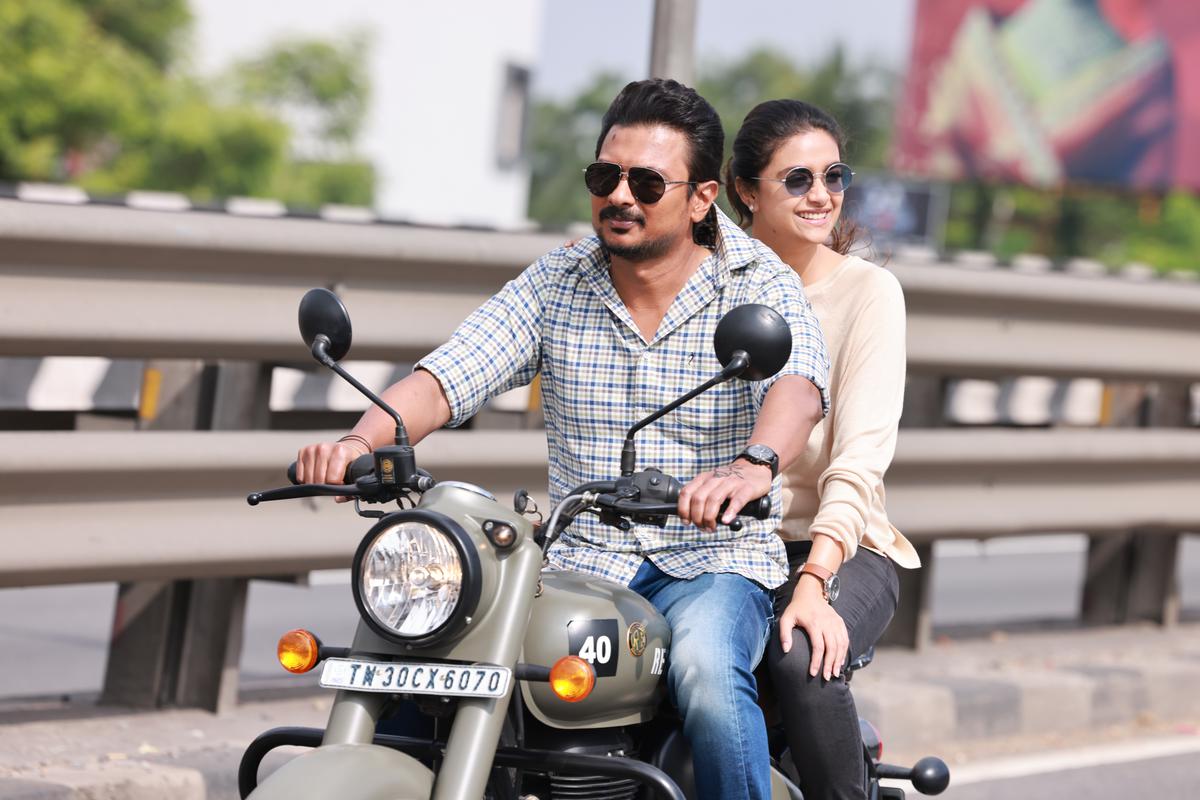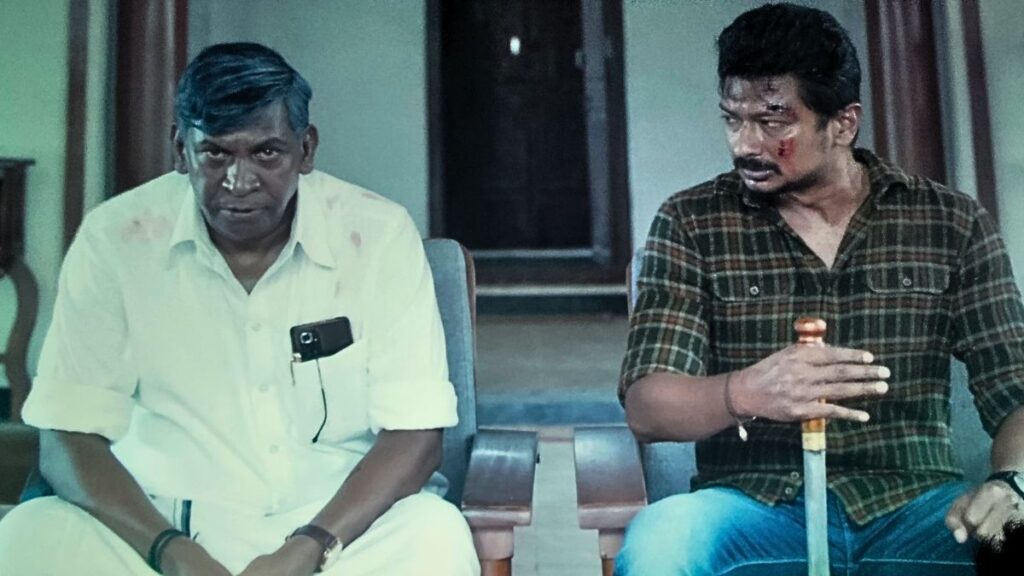
Maamannan Review: Balancing Ambition and Reality
Director
Mari Selvaraj
Stars
Vadivelu, Fahadh Faasil, Keerthy Suresh, Udhayanidhi Stalin
Writer
Mari Selvaraj
Producer
Udhayanidhi Stalin
Runtime
155 minutes
Deals
Release Date
29 June 2023
Maamannan Review:
“Maamannan” directed by Mari Selvaraj is a thought-provoking film that explores the dynamics of power, privilege, and oppression in a society divided by caste lines. With a strong ensemble cast and intense themes, the movie aims to deliver a potent message while balancing its ambitions with the reality of cinematic execution.
Unveiling Oppression through Contrast:
The film commences with a compelling visual contrast, presenting two instances of violence – one involving Rathnavelu (Fahadh Faasil), a privileged individual, and the other featuring Adiveeran (Udhayanidhi Stalin), a martial arts trainer from an oppressed community. This initial setup effectively establishes the recurring theme of power dynamics, highlighting the brutality of oppression and the defiance against it.
Narrative Evolution and Social Change:
Drawing parallels with Mari Selvaraj’s previous work “Karnan,” “Maamannan” delves into the idea that resistance is sometimes the only viable response to oppression. However, the film takes a more optimistic approach by exploring how change can be initiated through democratic means. The conflict escalates from a local issue to a political power struggle, as Adiveeran and Maamannan confront Rathnavelu’s domineering tactics.

First Half – A Familiar Territory:
The first half successfully delivers the quintessential Mari Selvaraj experience – scenes depicting stark oppression, poignant guilt, budding romance, unapologetic villainy, and the emergence of defiant heroism. The director’s skillful portrayal of these elements keeps the audience engaged, and the cast’s stellar performances, especially Vadivelu’s transformation, add authenticity to the characters.
Second Half – Ambition and Dilution:
While the first half establishes a solid foundation, the film’s dramatic potency becomes diluted in the second half. The narrative broadens its scope into a political power play between oppressors and the oppressed. Here, the film’s ambition seems to outweigh its realistic portrayal, leading to a departure from the grittiness of the initial setup. Rathnavelu, who was initially portrayed as a menacing antagonist, loses his edge and uncertainty creeps in, undermining the tension that was built.
Characters and Ideologies:
As the film progresses, the characters’ ideologies and actions start to shift. Maamannan’s pacifism takes on an air of political naiveté, while Adiveeran’s transformation starts resembling the conventional hero of commercial cinema. This evolution, while attempting to create complex character arcs, slightly veers into the territory of social fantasy, challenging the grounded realism of the movie’s premise.

Ambitious Balancing Act:
“Maamannan” showcases Mari Selvaraj’s ambition to deliver a socially relevant message while engaging the audience with compelling storytelling. However, this ambition occasionally overshadows the narrative’s execution, resulting in a slight disconnect between the themes and the portrayal. The film’s intention to blend social commentary with cinematic entertainment is commendable, but the second half’s departure from the initial tone raises questions about consistency.
Conclusion:
“Maamannan” is a film that sets out with noble intentions, exploring pertinent issues surrounding caste-based oppression, privilege, and defiance. Mari Selvaraj’s direction and the performances of the cast contribute to the film’s engaging storytelling. Nevertheless, the shift in narrative tone and character trajectories in the second half dilutes the film’s impact. As a viewer, one appreciates the film’s aspirations, but it ultimately reminds us of the challenges in balancing ambitious storytelling with a cohesive cinematic experience.
To check out more such cinema content, Follow Cinemamade Reviews
Sorry, no post found.
Trivia
- The lead actor, Fahadh Faasil, underwent rigorous martial arts training for his role in "Maamannan." He trained under professional trainers to ensure authenticity in the action sequences.
Goofs
- In one scene, there is a continuity error with the position of a character's watch. In the initial shot, the watch is on the left wrist, but in the subsequent shot, it mysteriously moves to the right wrist.




